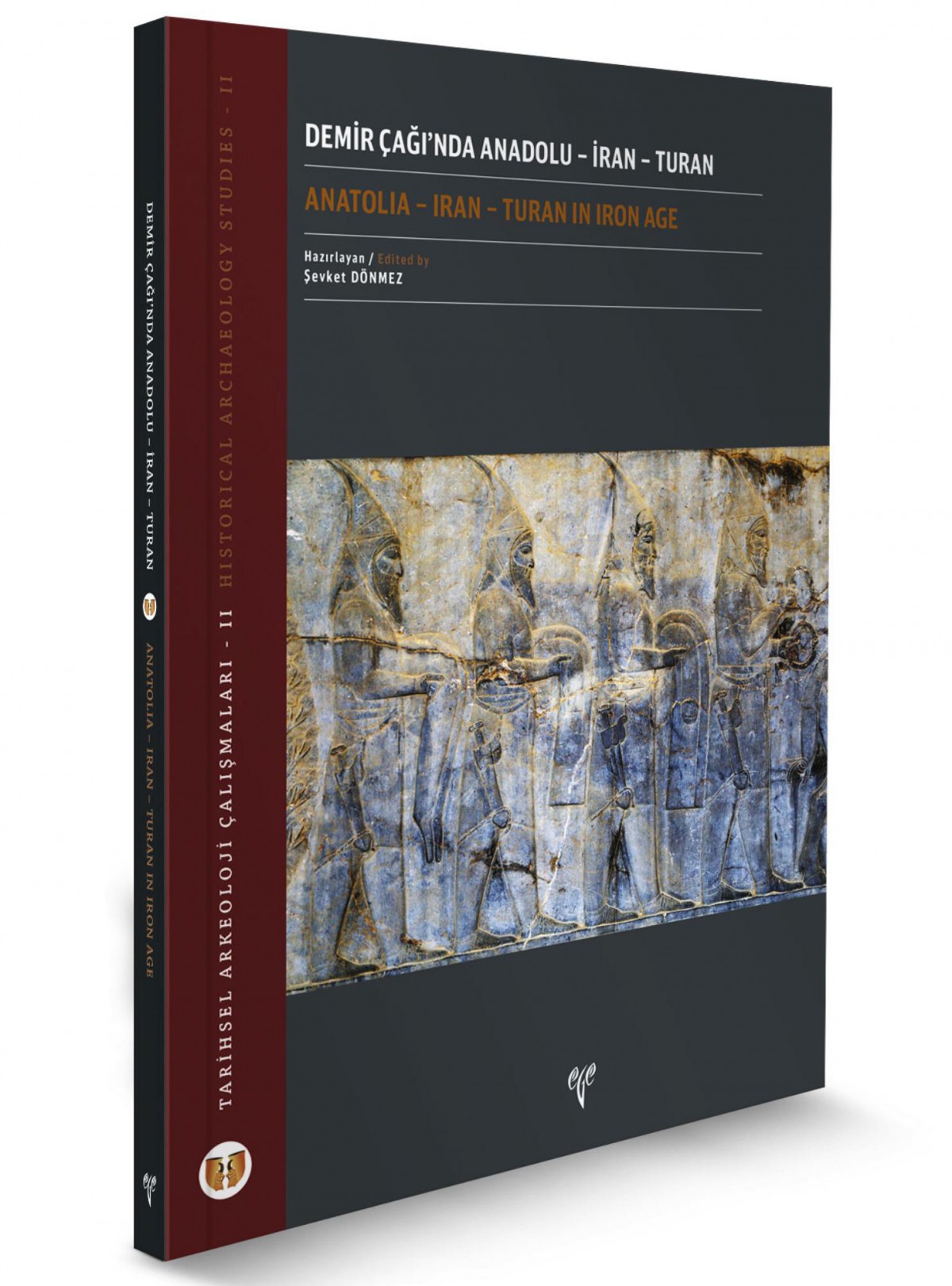127 pp, color figures, pb, in Turkish-English bilingual.
The state of unity between Anatolia -Iran - Turan geographies with their deep internal cultural, religious and most importantly the military connections have started to appear as the vital results of the recent researches starting from 800 BC to the Hellenistic Period (330 BC). These connections and related activities were carried out, perhaps for the first time in the history of the Near East, by the Eurasian Horse Riding Warrior-Nomads, who deeply shook the Anatolia as well as the Caucasus, Western Iran and Northern Mesopotamia which formed its immediate surroundings. It is understood that the military operations, which initially started with infiltration movements, gradually turned into massive powerful raids.
In the section titled “The Archaeology of the Early Turks: An Archaeological Perspective on the Homeland Problem of the Turks”, which constitutes the first article of the book, the contributions and effects of horse nomads which were generally accepted as Scythians (Early Scythian, Classical Scythian) who originated from the Southern Volga Basin and West-Central Asia which is the homeland of the Turks to the history, culture, art and especially the lifestyle of Iron Age Anatolia are mentioned.
The second article named “Were the Pre-Christian Armenians Zoroastrian? New Observations on Archaic Armenian Believes” has been written in Turkish and English as a reply to the Armenian museum expert Dr. Miqayel Badalyan. Dr. Miqayel Badalyan had penned a critique for my book titled “Anatolia and Armenians: Great Exodus of Halys Basin Iron Age Peoples to the Eastern Anatolian Highland” which I have written in 2016 in Turkish and English.
In the third article titled “Early Zoroastrian (Magi) Religion in Anatolia in the Light of New Evidence”, the institutionalization of the Cult of Fire in the light of Oluz Höyük architectural finds and evidence as well as the evaluation of a new religious establishment and the birth of the Archaic Monotheism in scope of the Anatolia and Near East were done.
In the fourth article of the book titled “Archaeogeophysical Studies in the Preservation of Archaeological Heritage at the Early Zoroastrian Sanctuary at Oluz Höyük” archaeogeophysics work in Oluz Höyük which has been implemented continuously since 2008 and considered one of the usual archaeological methods is generally evaluated, emphasizing its importance in the discovery of the unique Anatolian Iron Age architecture such as Persian Road, Atashkadeh and the Sanctuary.
In the last article of the book, titled “The First Kurgans - Tumuli in Anatolia”, the emergence, spread and connections of the kurgans and tumuli in the Anatolian geography are evaluated.
I would like to express my gratitude to Ahmet Boratav, the staff of Ege Publications and my valuable colleagues who contributed with their articles, for enabling us to publish the second issue of the Historical Archaeology Studies Publication Series in a fast and qualified manner. Şevket Dönmez
İçindekiler / Contents
- Önsöz
- Foreword
- İlk Türklerin Arkeolojisi: Türklerin Anayurt Sorununa Arkeolojik Bir Bakış / Şevket Dönmez
- Hıristiyanlık Öncesi Ermeniler Zerdüşt Dini Mensubu muydu? Arkaik Ermeni İnançları Hakkında Yeni Gözlemler / Şevket Dönmez
- Were the Pre-Christianity Armenians Zoroastrian? New Observations on Archaic Armenian Believes / Şevket Dönmez
- Güncel Arkeolojik Bulgular Işığında Anadolu Erken Zerdüşt (Magi) Dini / Mona Saba
- Oluz Höyük Erken Zerdüşt Dini Kutsal Alanında Arkeolojik Mirasın Korunması Çalışmalarında Arkeojeofizik Araştırmalar / Fethi Ahmet Yüksel – Mona Saba - Şevket Dönmez
- Anadolu’da İlk Kurganlar-Tümülüsler / Aynur Özfırat




